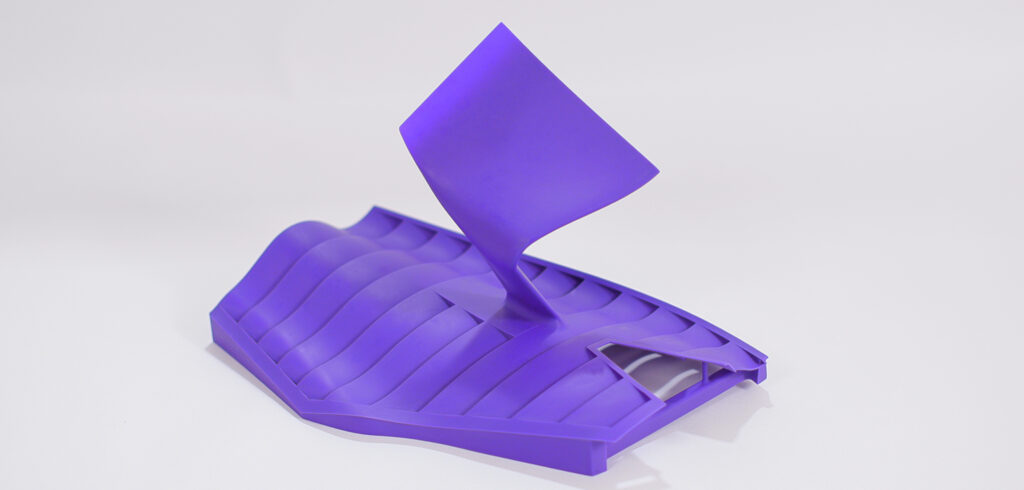Additive manufacturing specialist 3D Systems has released its Accura Composite PIV material which it says is specifically designed for PIV (particle image velocimetry) testing applications used primarily in motorsports wind tunnel testing.
Developed in collaboration with the Alpine F1 Team, the material is capable of producing rigid parts in a high-contrast color optimized for PIV testing, says the company. This means that parts produced using the material take significantly less time to prepare – from CAD to wind tunnel – and deliver more accurate, high-resolution PIV data. When used as part of a complete 3D Systems additive manufacturing solution – comprising Accura Composite PIV, the company’s stereolithography (SLA) technology, software and advanced application services – the Alpine F1 Team has apparently been able to maximize its wind tunnel investment and improve its aero development rate.
One challenge with taking reliable PIV measurements is the reflection of laser light from background surfaces other than the airborne particles. This reduces the image quality, resulting in a loss of useful information. According to 3D Systems, the Alpine F1 Team has demonstrated that the new SLA material is effective in reducing the laser reflection effect.
The company notes that the workflow to produce wind tunnel parts using other currently available materials often requires a multi-step process to achieve a suitable finish required for wind tunnel testing. The unique color of the PIV specific provides the possibility to eliminate some of these steps and therefore compress the workflow for efficiency and throughput gains.
“We’ve proudly collaborated with 3D Systems for many years,” said Pat Warner, advanced digital manufacturing manager at the Alpine F1 Team. “The deep expertise of their application engineers and their industry-leading solutions have been an invaluable part of our innovation team. It’s been exciting to co-develop Accura Composite PIV and see the benefits it’s bringing to our process. We produce nearly 500 parts per week for wind tunnel testing. Due to the material’s unique optical characteristics, we are now collecting more reliable data from our PIV system in the wind tunnel.”
In addition to its unique color, the material has a high tensile and flex modulus, with a heat deflection temperature of 100°C, which makes it ideal to withstand the rigors of wind tunnel testing.
“Customer-centric innovation is a guiding force within 3D Systems,” said Kevin Baughey, segment leader of transportation and motorsports at 3D Systems. “Working with the Alpine F1 Team to develop our newest material is another example of how we’re leveraging our F1 application expertise to develop advanced solutions that give our customers a competitive edge. We’ve been impressed by the results the team has experienced in the wind tunnel, and look forward to seeing their success on the circuit this season.”



